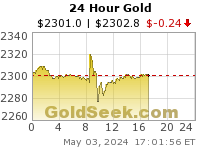The following article was adapted from Robert Prechter's 2002 New York Times, Wall Street Journal and Amazon best-seller, Conquer the Crash – You Can Survive and Prosper in a Deflationary Depression.
By Robert Prechter, CMT
Seventy years of nearly continuous inflation have made most people utterly confident of its permanence. If the majority of economists have any monetary fear at all, it is fear of inflation, which is the opposite of deflation.
As for the very idea of deflation, one economist a few years ago told a national newspaper that deflation had a “1 in 10,000” chance of occurring. The Chairman of Carnegie Mellon's business school calls the notion of deflation “utter nonsense.” A professor of economics at Pepperdine University states flatly, “Rising stock prices will inevitably lead to rising prices in the rest of the economy.” The publication of an economic think-tank insists, “Anyone who asserts that deflation is imminent or already underway ignores the rationale for fiat currency — that is, to facilitate the manipulation of economic activity.” A financial writer explains, “Deflation…is totally a function of the Federal Reserve's management of monetary policy. It has nothing to do with the business cycle, productivity, taxes, booms and busts or anything else.” Concurring, an adviser writes in a national magazine, “U.S. deflation would be simple to stop today. The Federal Reserve could just print more money, ending the price slide in its tracks.” Yet another sneers, “Get real,” and likens anyone concerned about deflation to “small children.” One maverick economist whose model accommodates deflation and who actually expects a period of deflation is nevertheless convinced that it will be a “good deflation” and “nothing to fear.” On financial television, another analyst (who apparently defines deflation as falling prices) quips, “Don't worry about deflation. All it does is pad profits.” A banker calls any episode of falling oil prices “a positive catalyst [that] will put more money in consumers' pockets. It will benefit companies that are powered by energy and oil, and it will benefit the overall economy.” Others excitedly welcome recently falling commodity prices as an economic stimulus “equivalent to a massive tax cut.” A national business magazine guarantees, “That's not deflation ahead, just slower inflation. Put your deflation worries away.” The senior economist with Deutsche Bank in New York estimates, “The chance of deflation is at most one in 50” (apparently up from the 1 in 10,000 of a couple of years ago). The President of the San Francisco Fed says, “The idea that we are launching into a prolonged period of declining prices I don't think has substance.” A former government economist jokes that deflation is “57th on my list of worries, right after the 56th — fear of being eaten by piranhas.” These comments about deflation represent entrenched professional opinion.
As you can see, anyone challenging virtually the entire army of financial and economic thinkers, from academic to professional, from liberal to conservative, from Keynesian socialist to Objectivist free-market, from Monetarist technocratic even to many vocal proponents of the Austrian school, must respond to their belief that inflation is virtually inevitable and deflation impossible.
……….
For more on deflation, download Prechter's FREE 60-page Deflation Survival Guide or browse various deflation topics like those below at www.elliottwave.com/deflation.
- Is deflation a precursor to depression?
- The case for deflation
- US deflation risk
- Can the Fed stop deflation?
- And much more in Prechter's FREE Deflation Survival Guide.
Robert Prechter, Chartered Market Technician, is the world's foremost expert on and proponent of the deflationary scenario. Prechter is the founder and CEO of Elliott Wave International, author of Wall Street best-sellers Conquer the Crash and Elliott Wave Principle and editor of The Elliott Wave Theorist monthly market letter since 1979.


No comments:
Post a Comment